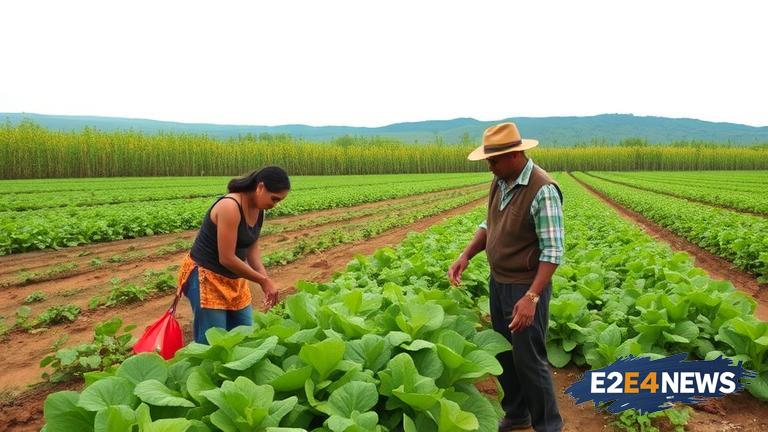Native Nations, a pioneering organization, has launched an innovative agricultural program designed to empower local farmers in St. Maarten. The initiative aims to foster a more inclusive and sustainable farming community, providing farmers with the necessary tools, training, and resources to thrive. By promoting environmentally friendly practices, the program seeks to reduce the island’s reliance on imported produce, while also enhancing food security and promoting economic growth. The program’s comprehensive approach includes workshops, mentorship opportunities, and access to cutting-edge technology, enabling farmers to improve crop yields, reduce waste, and increase their market competitiveness. Furthermore, the initiative prioritizes community engagement, encouraging farmers to share knowledge, best practices, and resources, thereby strengthening the local farming network. Native Nations’ program also focuses on promoting biodiversity, conserving water resources, and mitigating the impacts of climate change. By supporting local farmers, the organization aims to preserve the island’s unique cultural heritage and contribute to the development of a more resilient and sustainable food system. The program’s inclusive nature ensures that all farmers, regardless of their background or experience, have equal access to opportunities and resources. This initiative has the potential to transform the agricultural landscape of St. Maarten, enabling local farmers to become more self-sufficient, productive, and successful. As the program continues to grow and evolve, it is expected to have a positive impact on the island’s economy, environment, and community. The introduction of this program is a significant step towards creating a more sustainable and food-secure future for St. Maarten. By investing in local farmers and promoting sustainable agriculture, Native Nations is helping to build a more resilient and prosperous community. The program’s emphasis on community development, environmental stewardship, and economic growth makes it an exemplary model for other islands and regions to follow. As the world grapples with the challenges of climate change, food insecurity, and environmental degradation, initiatives like Native Nations’ agricultural program offer a beacon of hope for a more sustainable and equitable future. The program’s success will depend on the continued support and collaboration of local farmers, community leaders, and stakeholders. However, with its comprehensive approach, commitment to inclusivity, and focus on sustainability, Native Nations’ agricultural program is poised to make a lasting impact on the island of St. Maarten. The initiative has already garnered significant attention and interest from local farmers, who are eager to participate and benefit from the program’s resources and expertise. As the program expands and develops, it is expected to attract international attention, showcasing St. Maarten as a leader in sustainable agriculture and community development. The island’s unique cultural and environmental context makes it an ideal location for this type of initiative, and Native Nations is well-positioned to capitalize on this opportunity. By leveraging the island’s natural resources, cultural heritage, and community spirit, the program can help to create a more vibrant, diverse, and resilient agricultural sector. The long-term benefits of this program will be far-reaching, contributing to the island’s economic growth, environmental sustainability, and social well-being. As Native Nations continues to work towards its goals, it is clear that the organization is committed to making a positive impact on the island and its people. The introduction of this program is a significant milestone in the organization’s history, and it is expected to have a lasting legacy for generations to come. The program’s focus on inclusivity, sustainability, and community development makes it a shining example of innovative and effective programming. Native Nations’ agricultural program is a testament to the power of community-led initiatives and the importance of investing in local farmers and sustainable agriculture.





